Apple’s Mobile Search Play
The rise of mobile search shouldn’t come as a surprise. What might be a surprise is that Google’s not the only one influencing the way we search on our iPhones. In the nearly 11 years since the iPhone was released and we started using Safari on our phones, Apple has been slowly rolling out new search features that make it easier to find what users are looking for.
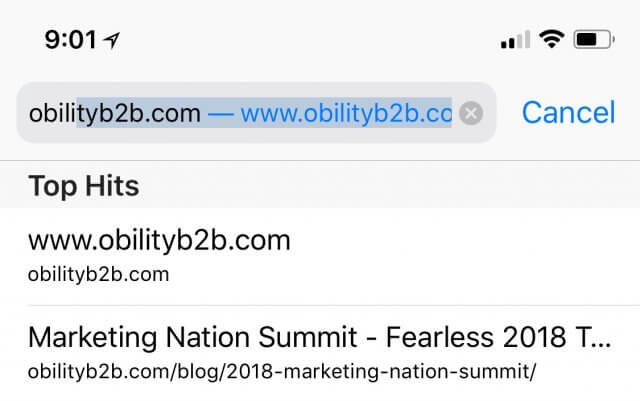
Top Hits
With this feature, Safari will pre-load sites that a user has visited in the past and from their bookmarks. By pre-loading the sites, Safari speeds up the loading of a page and improves the user experience. Of course, this also bypasses the search engine and is recorded as direct traffic in analytics tools.
Siri Suggested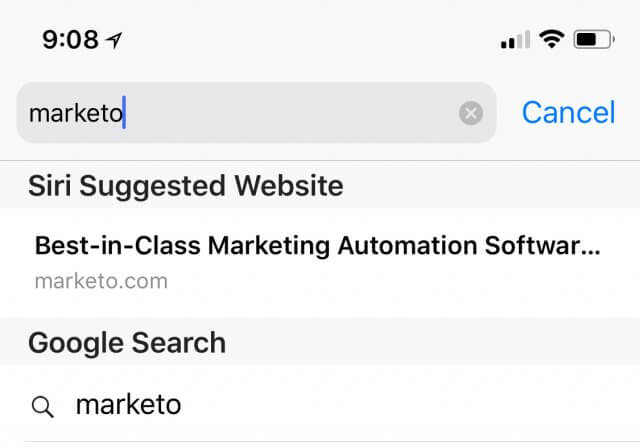
Website
Based on user behavior in Safari, Apple’s Siri service recommends websites that are highly likely to be the correct site. This is as close to an honest-to-god search engine as Apple has gotten, but as of yet, Apple has not revealed how Siri chooses the sites that show in the Suggested Website service. Again, choosing this result bypasses the search engine and is recorded as direct traffic in analytics tools.
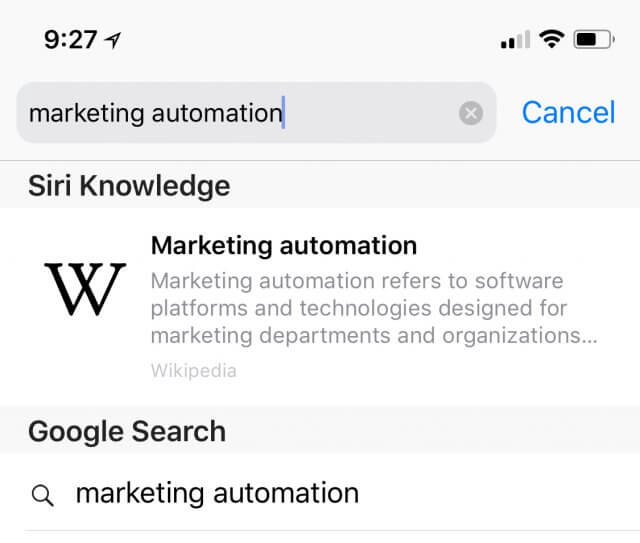
Siri Knowledge
Another Siri feature that shows up in Safari is Siri Knowledge. More than just offering up a suggested website or pre-loading a website, this feature attempts to answer the user’s query, much in the way Google’s featured snippets do. Siri Knowledge also features the source of the knowledge (often Wikipedia) and a link to this site. One of the uncanny things about this feature is that it can even offer content based on app usage outside of Safari. For example, if you are watching a TV show on Netflix, and do a related search in Safari, there is a chance that the Siri Knowledge will be related to that TV shows. This makes the results exceptionally good. I’m starting to sound like a broken record, but once again, choosing this result doesn’t use a search engine and is considered direct traffic.
App Store Results 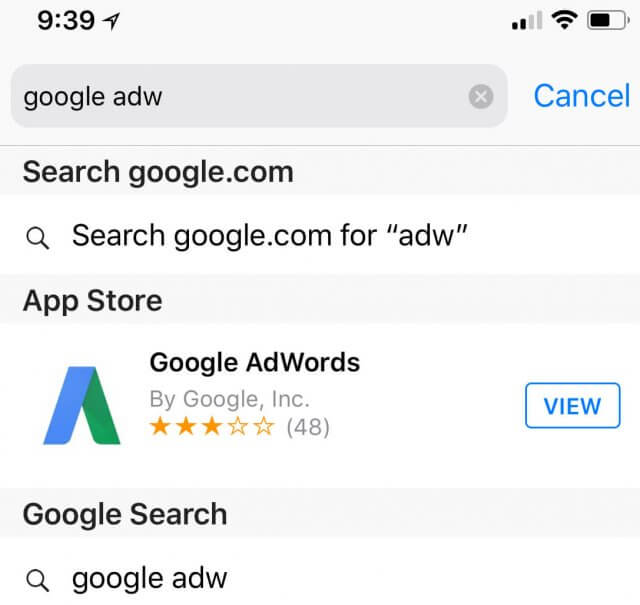
When a user’s search query matches the name of an app available on the Apple App Store, Safari will show an App Store result that links to an App page within Safari. Users can even download the App from this page. If a user already has the App installed on their device, the link opens the App.
Other results
There are a number of other types of results that can show up including Maps, Weather, Stocks, Dictionary and Sports.
Why Google Should Be Worried
According to some estimates, Google paid Apple $3 billion last year to be default search on iOS devices. Given that over half of all web traffic comes from mobile devices this emphasis is understandable. I think Google should be concerned and I suspect that they might lose a significant amount of search traffic to Apple in the long term.
Mobile Safari Browser Share
The web browser on iOS devices Mobile Safari currently has over 50% of the US mobile browser market share and while this may be lower in other regions of the world, the worldwide share for Mobile Safari is above 15%. There is also the fact that it is likely that Mobile Safari has a much stronger influence on the web traffic that the browser share along can account for. After Apple implemented Intelligent Tracking Protection in iOS 11to increase privacy for users, one ad tracking firm saw a 20% drop in revenue. This shows that any feature Apple ads to Mobile Safari that changes the way people search is a de facto market maker. It’s not enough for Google to be the default search engine in Mobile Safari if users opt to click on Apple’s search features instead.
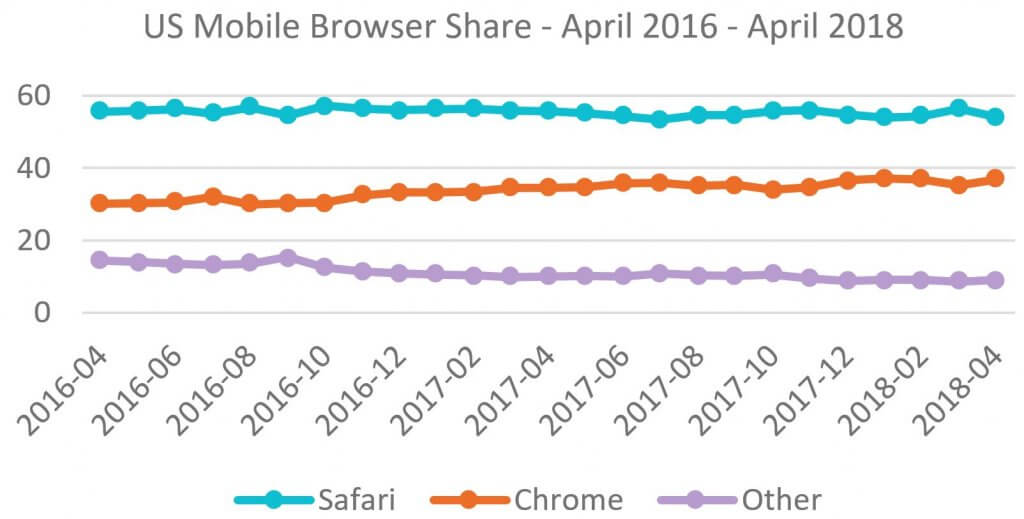
Mobile Safari Privacy Protections
As mentioned earlier, Apple has implemented important changes to privacy settings in Mobile Safari In the last few years. Besides the Intelligent Tracking Protection which became a default setting in iOS 11, Apple has also disabled Cross-Site Tracking in recent versions of iOS. Unlike past privacy changes like content blockers that required users to take an affirmative action, these settings are on by default and need to be affirmatively turned off (which almost nobody does).
Taken together, Apple’s moves into search are making it easier for iOS users to skips search engines, masks the source of the traffic and reduces advertising and marketing companies ability to track users behavior across the web. Google is the world’s largest recipient of advertising revenue and should be scared that one of the most used platforms in the fastest growing corners of the web (mobile) is making moves to cut part of that revenue off.
Why Digital Marketers Should Care
With the changing landscape of iOS search and the threat to Google’s hegemony in search clearly established, the question becomes: Why should digital marketers care about this change and what can they do to adapt? First, as discussed, iOS represents a significant portion of mobile traffic, especially in the U.S. Second, with Apple’s play in mobile search allows users to skip advertising entirely and presents a single result from an authoritative source.
The approach to addressing Apple’s search play is similar to the approach marketers are starting to take to address voice search.
Prospect Intent
It’s as important as ever to understand the intent inherent in your prospect’s queries. Crafting your content to meet the prospects intent is the clearest path to showing up when the result set is as limited as it is in Apple’s search features.
Mobile Friendly
Google has been emphasizing mobile friendliness for years now and with the roll-out of mobile speed update and the mobile first index this continues. But with Apple’s overall philosophy of prioritizing user experience and the particular focus of their search features it is also likely Apple will emphasize results that are mobile friendly.
